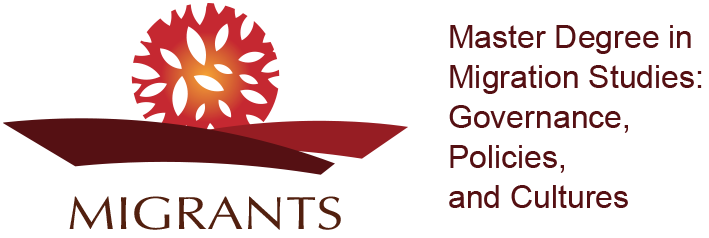Kick-Off Meeting
Tunis, February 13th – 14th 2020
Inaugural Speech of prof. Serena Marcenò
Project Coordinator and Scientific Responsible
Presidents, General Director, Colleagues and Friends,
It is a great honour and pleasure for me to be here today with all of you to launch our MIGRANTS project. This day is the result of many years spent together, the result of the cooperation between our universities and communities.
I have never thought of MIGRANTS as a project. MIGRANTS represents our modus operandi within our academic communities, crossing borders, languages and cultures.
Cooperation between communities is the way to deal with the challenges of our time. We are here today to share our commitment to recognise and value our differences and our common vision, especially the social responsibility that academic institutions have today in the Euro Mediterranean Region.
Cooperation between communities is a way of working in order to respond to the challenges of our present time.
Globalization has generated forms of exclusion within the same political and geographical spaces, breaking up the classic dichotomies of the geographical, class, race and gender boundaries.
By working together in order to protect the right to education on a global level, as we do, we guarantee young women and men the freedom to think and act, and we affirm the role of education systems as agent of political transformation, protecting our societies from the risks of authoritarianism.
Universities are not places of mere training, and knowledge cannot be reduced to mere know-how. Our strategies cannot be subjected to the logic of realpolitik, and we have the duty, and the right, to educate to change by expanding our ethical and political sphere towards the whole of humankind.
If social exclusion affects the whole planet today by complicating the classic distinctions between the first, second and third world, and manifests itself in varied forms of vulnerability, poverty, exclusion, we must take seriously the integration of educational systems and academics globally.
The people who suffer the exclusionary effects of economic and financial globalization are different in geographical and social term: middle and working classes, migrants, women, young people, the elderly.
Faced with the new forms of exclusion on a local and global scale, we should ask ourselves what tools do we have? What solutions are we aiming at, and what is the knowledge we are carrying with us?
How to challenge an education model that produces first and second class citizens, the first socially included, the second to feed the groups of precarious lives. Precarious lives which, let us remember, not only lack economic guarantees, but also legal protection and political recognition that produce subaltern subjects, surplus people, waste lives, collateral damages.
This exclusion works not in the form of genocide, but through policies of protection or abandonment at local and global level, dividing good lives and bad lives.
To counter this drift we must stop working on the emergency and focus normality. To give visibility to factual educational border crossing, working in a cooperative way
The educational border crossing that we have been facilitating for many years between our Universities and with the NGOs and associations present here today, is based on reciprocity.
We work on paths of no-return, not because return is excluded, but because border crossings, of all borders, create dispersion and contamination, two conditions for keeping open the reframing process of what we call and recognize as community, people, citizenship, universitas.
We work for lives that are in transit but also in transition, to open new perspectives of inclusion, we work trying to protect these lives, not to abandon them to competition, or to struggle for survival.
The migration phenomenon has to be addressed outside the logic of emergency and improve cooperation at international level. This can be reached by improving migration governance in the countries that face with this phenomenon. Only in this way we can assure that migration could works as a source of prosperity, innovation and sustainable development.
Migration produces a connection within and across geo-political regions that link countries of origin, transit and destination. In order to cope with this reality, and to avoid the negative impacts that this phenomenon might have on all these countries, it is imperative to make an international effort to strengthen the knowledge and understanding such a complex phenomenon.
This includes improving share policies that will reduce the risks of irregular migration, both for people on the move and for people living in transit and destination countries. Good governance and migration policies prevent, combat and eradicate smuggling in the context of international migration.
They also avoid migration flows to be used to strengthen instabilities in the countries involved, and to make them more vulnerable from a social and political point of view.
According to Global Compact’s vision of international migration, it is important to recognize that a comprehensive approach is needed to optimize the overall benefits of migration, while addressing risks and challenges for individuals and communities in all the countries involved.
No country can address the challenges and opportunities of this global phenomenon on its own.
Thank you for your attention, and good luck to us all!
